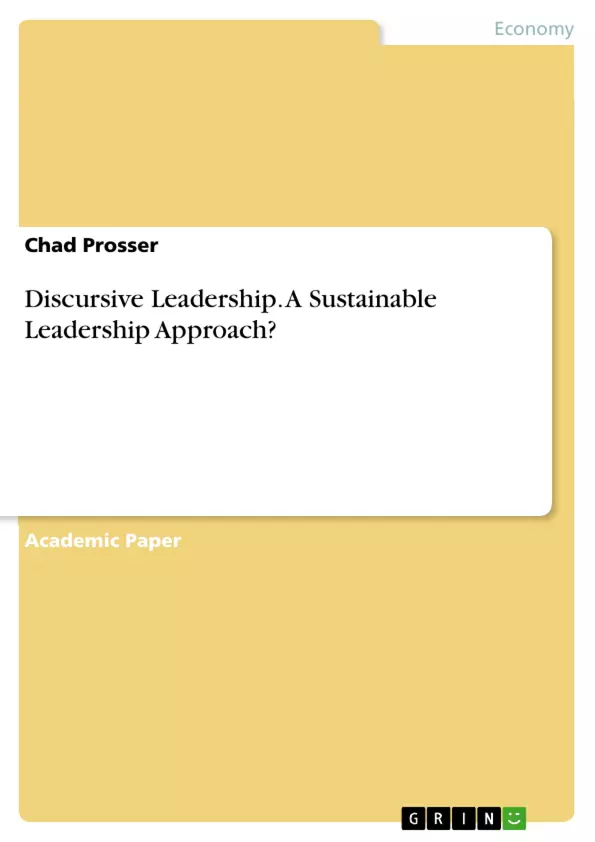Leadership is a critical element in any field. Countless amount of research has been poured into the study of leadership. Yet seemingly there is always room for more as social constructs change within our societies. While there are certain constants that have been proven within the leadership field, the uncertainties have been faced with creative leaders at the right place, right time.
Unknown to many as a style of leadership, the discursive leadership methodology seems to utilize the art of framing words and ideals through a common language set to build upon organizational values and standards. Further, it places more responsibility on subordinates to pave the way for the organization’s future; all the while, the leader of the organization is simply guiding their intent to meet their endstate but subordinates feel as if they were the ones to have created and made the change possible. However, as with any subject, discursive leadership methodologies need much more research to validate its potential as a
sustainable leadership approach.
Inhaltsverzeichnis (Table of Contents)
- Discursive Leadership: A Sustainable Leadership Approach?
- Literature Review and Definitions
- Discussion
- Future Research
- Conclusion
- References
Zielsetzung und Themenschwerpunkte (Objectives and Key Themes)
This paper examines the concept of discursive leadership and explores its potential as a sustainable leadership approach. It delves into the theoretical underpinnings of this leadership style and analyzes its application in organizational contexts. The aim is to understand how discursive leadership fosters a shared vision, empowers subordinates, and facilitates positive change within organizations.
- The nature and role of communication in leadership
- The concept of framing and its impact on organizational discourse
- The distribution of leadership responsibilities and the empowerment of subordinates
- The potential benefits and challenges of adopting a discursive leadership style
- The relevance of discursive leadership in contemporary organizational contexts
Zusammenfassung der Kapitel (Chapter Summaries)
The paper begins by providing an overview of the existing literature on leadership, highlighting the complexities and ambiguities surrounding the concept. It then delves into the definition and conceptualization of discursive leadership, emphasizing its communication-based nature and its reliance on framing statements to influence organizational outcomes. The paper further explores the role of language in shaping organizational culture and empowering subordinates through discursive leadership. It examines the practical implications of this leadership style in various organizational settings, exploring its potential benefits and challenges.
Schlüsselwörter (Keywords)
Discursive leadership, framing, leadership, communication, empowerment, organizational culture, sustainability.
- Arbeit zitieren
- Chad Prosser (Autor:in), 2019, Discursive Leadership. A Sustainable Leadership Approach?, München, GRIN Verlag, https://www.grin.com/document/458907



